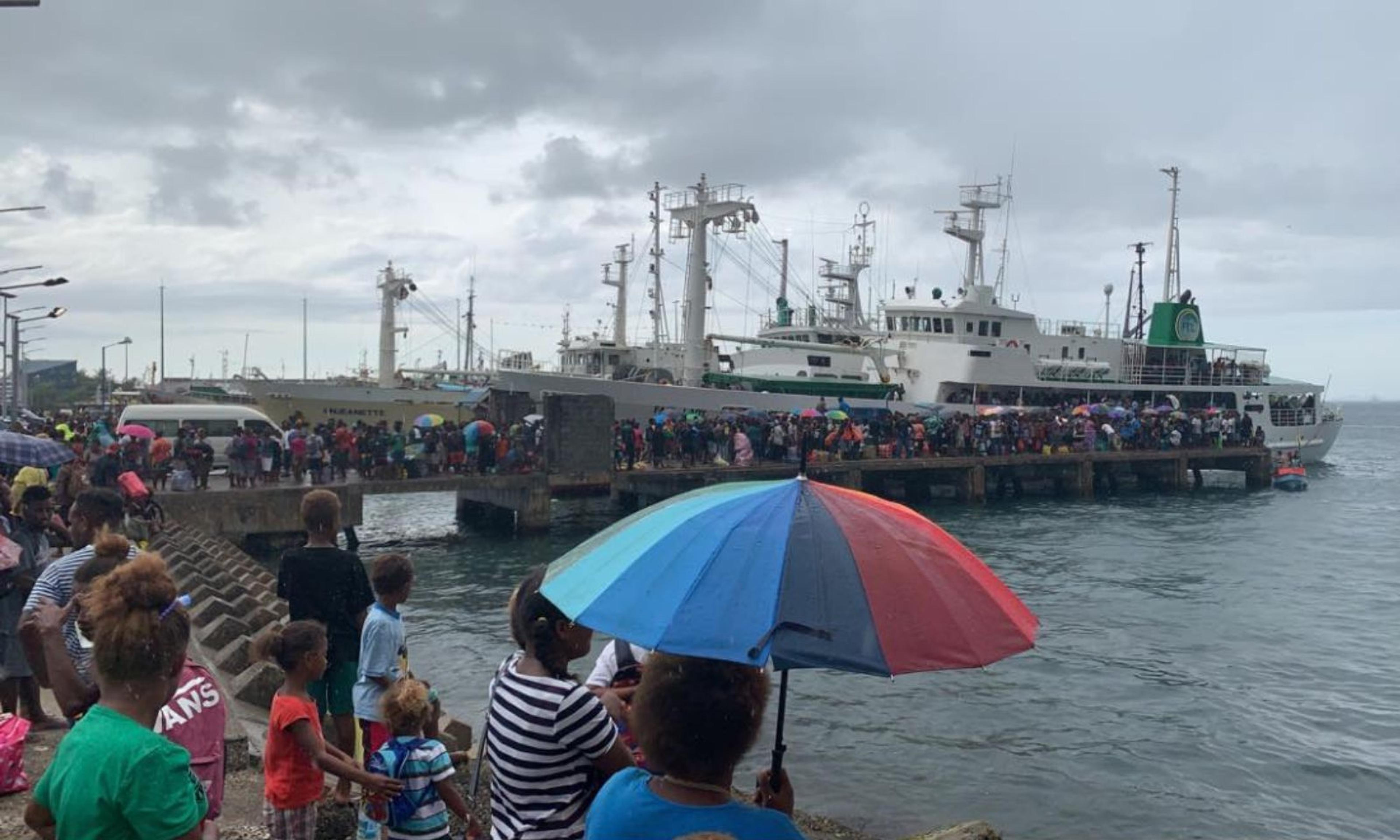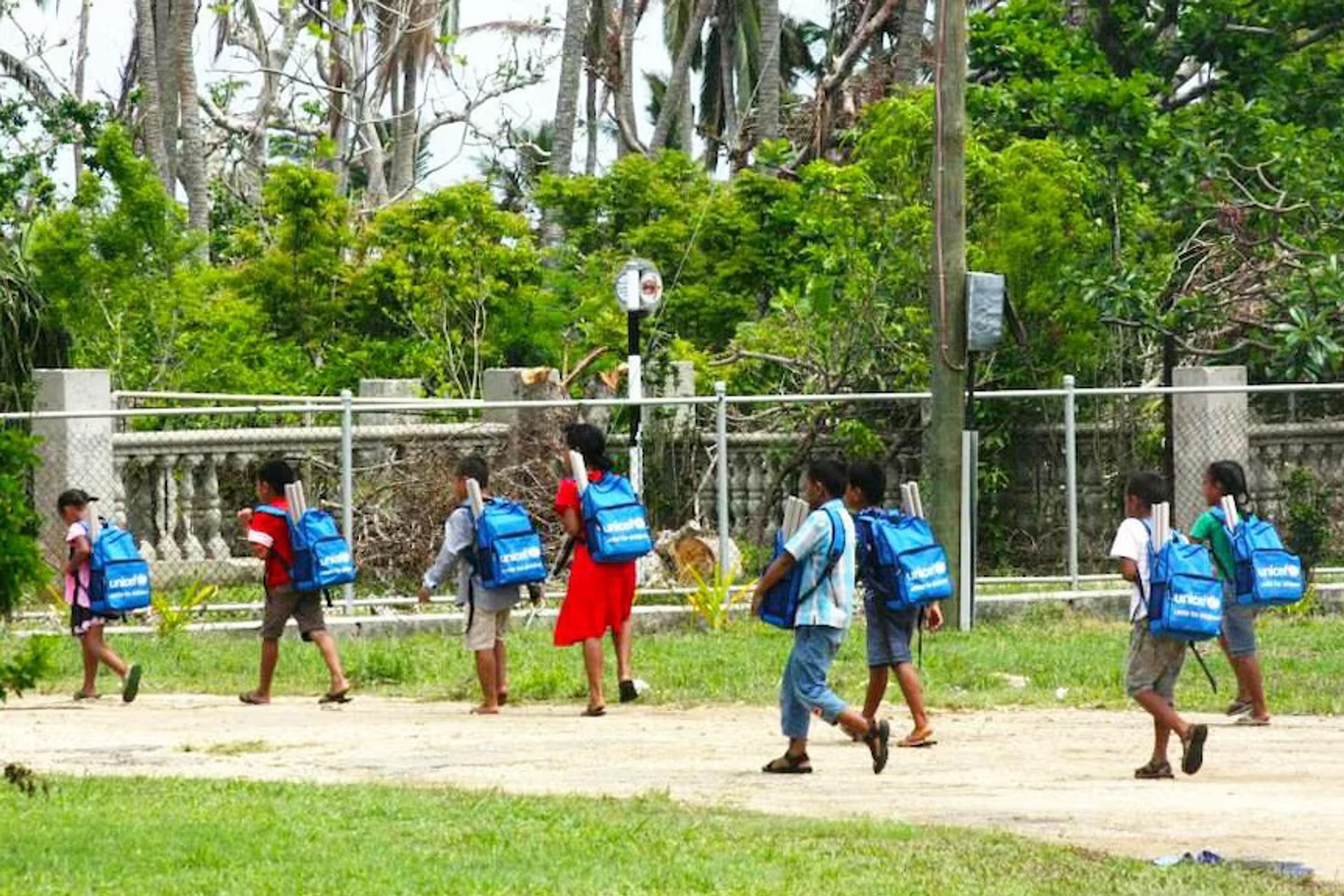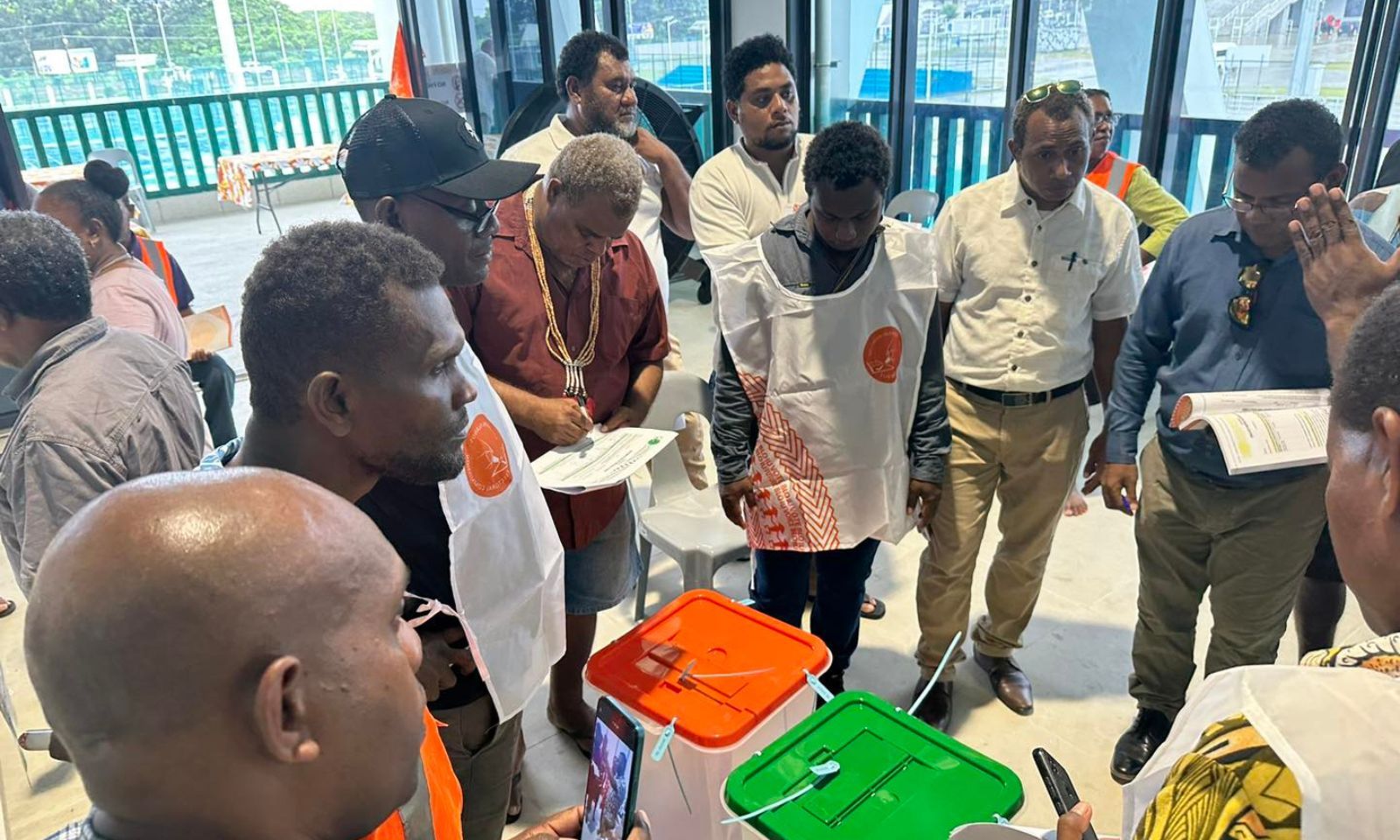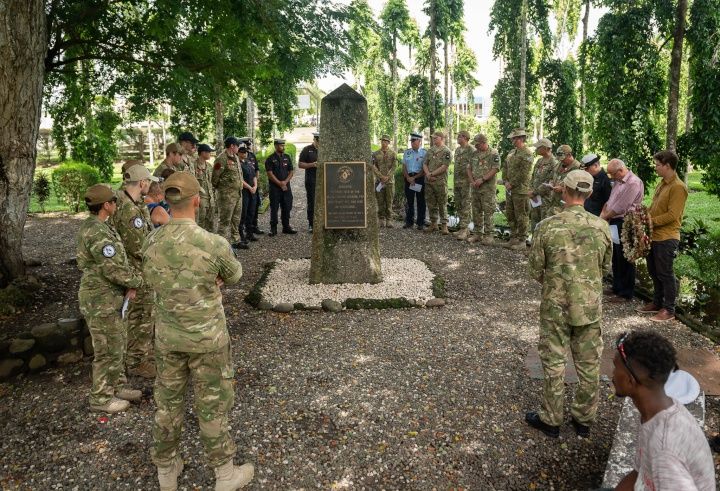

The Solomon Islands is geographically dispersed and this can be logistically challenging to ensure everyone has a chance to vote.
Koroi Hawkins/RNZ Pacific
All eyes are on the Solomon Islands
A record 7000 electoral officials are involved in Wednesday’s joint provincial and national elections in the Solomon Islands, in what the experts say is the most important vote in the country’s history.


New Year Honours: Jade Farrar builds unified vision for life without barriers

Climate disasters in 2025 impact Pacific children, review finds

‘Love is justice, lived out loud’: Reverend Wayne Toleafoa honoured for service

Pacific adventures lead Kiwi summer travel plans, new data shows

New Year Honours: Jade Farrar builds unified vision for life without barriers

Climate disasters in 2025 impact Pacific children, review finds

‘Love is justice, lived out loud’: Reverend Wayne Toleafoa honoured for service
More than 400,000 registered voters in the Solomon Islands get to decide today who will govern them for the next four years in what the experts are calling the most important election in the Pacific island nation’s history.
Seven out of 10 registered voters are under 34 years old, and the experts say if they vote, they could decide the outcomes of both the provincial and national elections, held together for the first time.
For foreign observers, the Solomons’ relations with China and whether Prime Minister Manasseh Sogavare will be re-elected are among the key issues.
Radio New Zealand’s head of Pacific Affairs, Koroi Hawkins, is in the Solomons’ capital Honiara, and says voters are more concerned about the ongoing economic problems than geopolitics.
Hawkins told 531pi's Pacific Mornings the country is being inundated with heavy rain this week which could affect voter turnout, particularly in the remote areas.
Watch Koroi Hawkins’ interview below.
It’s also a public holiday in the Solomons and polls opened at 7am local time, closing at 4pm.
Voters will get to elect 50 national and 131 provincial representatives.
With a 24-hour blackout on campaigning in place since Tuesday and reports of the “odd poster here and there”, Hawkins said most of the elections’ candidates have complied.
“In the past, provincial assembly elections were always held separately and at different times from the national elections.
“The new thing under the latest electoral amendments is that on the ballot paper, you vote for both your national MP as well as your provincial assembly member at the same time.
“So they're just basically doing the national government elections and the provincial assembly elections simultaneously.”
Home to about 730,000, according to the government’s official estimates for mid-2023, the Solomon Islands is located just over 3700km from New Zealand.
It is geographically dispersed and this can be logistically challenging in ensuring everyone has a chance to vote.
Voter education by Electoral Commission officials and the media have been tough, Hawkins said.
“It's always an expensive logistical exercise to do anything in our islands. I think they've done their best and done a good job and have been doing a lot of awareness around what this means.
“People have engaged and have been engaging with these two elections independently in the past. It's not like they're brand new things. It's just that they're being done at once. I think that the public and people that I have been talking to and voters seem to be aware of what's going on.”

Voting is underway in the Solomon Islands, and polls close at 4pm local time. Photo/SIEC
Western and Choiseul provinces are not included in today’s provincial polls because they have already held their elections, but voters there will be casting their ballots on who they want in the national government.
Electoral officials said counting of the provincial ballots would be held first ahead of the national votes.
These elections were postponed last year because the government said it “was too costly” to host both the Pacific Games and the vote in the same year.
“It was a bit controversial because it required a constitutional amendment,” Hawkins said. “But because the government had more than two thirds of the majority in the house, they were able to do that with pretty much their own numbers in government. They didn't need any support from the other side of the house to be able to pass that.
“There were some complaints about whether people should have had a referendum before constitutional changes were made. And it was a one off - the extension was for one year only.”
There are 334 registered candidates - 20 of whom are female - the lowest number of Solomon women to contest the elections.
The ruling party of Prime Minister Manasseh Sogavare - Ownership Unity and Responsibility (OUR) Party - had called on voters to judge the government by their record while the major opposition parties - the Democratic Alliance and Solomon Islands Democratic - signed a pre-election coalition, promising public service pay rises and job creation.
The democrats call themselves the Coalition for Accountability Reform and Empowerment (CARE) and group leader Matthew Wale said their campaigns focussed on free education, improving health services, creating employment, salary increases for government workers, reducing the cost of living and investing in infrastructure.
In the Solomons, public voters elect the MPs but not the prime minister. Following the election, the MPs will gather in Honiara and lobby, form camps and vote in the PM.
In 2019, Sogavare polled 34 votes over his rival Wale in the 50-seat Parliament.
“2019 is a long time ago,” Hawkins said. “We had the pandemic the following year so it seems even longer. I think people seem really determined and everyone I've talked to is really engaged in talking about why they're voting and what they're interested in and they have actively engaged in registering to vote and where they want to vote.
“There's always a high turnout for elections in the islands compared to the more developed nations like New Zealand and Australia. There's familial links, there's tribal links, provincial, you know, all of that plays into it.

New Zealand is providing security assistance during the Solomons elections. NZDF personnel gathered in Honiara last week to commemorate the sinking of the HMNZS Moa during WW2.
“It's like a sport. It's almost like an entertainment thing here as well. There were some really lively scenes early in the week while the campaigning was still going on. We had massive parades up and down the road.
“I think people have heard all of the spills and some people have already made up their minds. But I also spoke to some voters who were still undecided who said that they would make their decision in the polling station. It'll be interesting to see what the outcome will be.”
Aotearoa New Zealand, Australia, Papua New Guinea, and China are providing security assistance during the elections. But what do the locals think of their presence in the Solomons?
Hawkins said he would hear the “odd comment about like, is this a war zone?
“But a lot of the military here are actually supporting in the logistics of getting the ballot boxes, the elections materials around the country. It's quite an expensive exercise and a lot of places are quite remote.
“On the security front, obviously it’s always quite volatile here in Solomon Islands for elections. This early period what experts keep reflecting on and commenting on is usually fine because this voting period is when voters elect the members of parliament or members of provincial assemblies.
“But it's when it comes to the election of the prime minister for the national election and the premiers for the provincial election that is done just among the elected members and MPs.
“So that's where a bit of the transparency gets lost. And there's a lot of stuff that's done behind closed doors. And that's where usually if anything flares up, it flares up around the outcome, especially if it seems like the trend was trending in a certain direction and there's an anomaly in the result, that's usually when we have trouble here.”
This is the first election since the Solomon Islands cut ties with Taiwan in 2019 and reaffirmed Honiara's connection with Beijing.
One of Sogavare’s rivals for the top job, Peter Kenilorea Jr, has vowed to return ties back to Taiwan.
In early 2022, Sogavare signed a security agreement with China, leaving the United States and its closest allies in the Pacific region, New Zealand and Australia, uneasy.
Watch Johnson Honimae’s (Solomon Islands Broadcasting Commission) interview below.
There have been allegations of intervention by the Americans in the Solomons’ elections with the experts saying that as China's contact and cooperation with the Pacific island countries strengthen, Washington is “increasingly pushing hard its supposed superiority.”
But the geopolitics is not resonating with the locals, Johnson Honimae, of the Solomon Islands Broadcasting Commission, said.
He also told 531pi’s Pacific Mornings Solomon Islanders are not interested in the geopolitical crisis involving China and the US.
“People are more concerned about the issues that affect their daily lives - unemployment, the state of our infrastructure, the deteriorating state of our roads.
“We don’t talk about pot-holes anymore, we talk about crater holes. And this is not only in Honiara, this is basically all through the country.”
Since Beijing’s increased engagement in the Solomons and the Pacific, he said you could see the US re-engaging, such as reopening its embassy in Honiara after 30 years, among other things.
He said Aotearoa and Australia have been around “but again, stepping up that engagement. And I think the term that was coined is ‘we are no longer flyover states’. People are actually stopping and visiting and talking to Pacific island leaders.
“And so that increased attention, I think, the people that I've talked to here seem to acknowledge not just whether they disagree or agree with the switch to China, they can see that it's brought more attention and more engagement from other parties because of that decision to make that move.
“I think the big issue for people is whether the government of the day will be consultative and engaging and talking to people, coming back to the voter base about issues and decisions that they make at that level or whether they're just going to be prescriptive and running the country without that consultation to the wider public.”
Counting is expected to begin shortly after polls close on Wednesday afternoon and provisional results will be announced as each constituency count is completed.
Hawkins said the official results would only be proclaimed by the Governor-General, Sir David Vunagi, “once everything has been verified”.
“With a good deal of negotiating post-election, depending on the official results, lobbying to form the national and provincial governments could last anywhere from a few days to several weeks.”